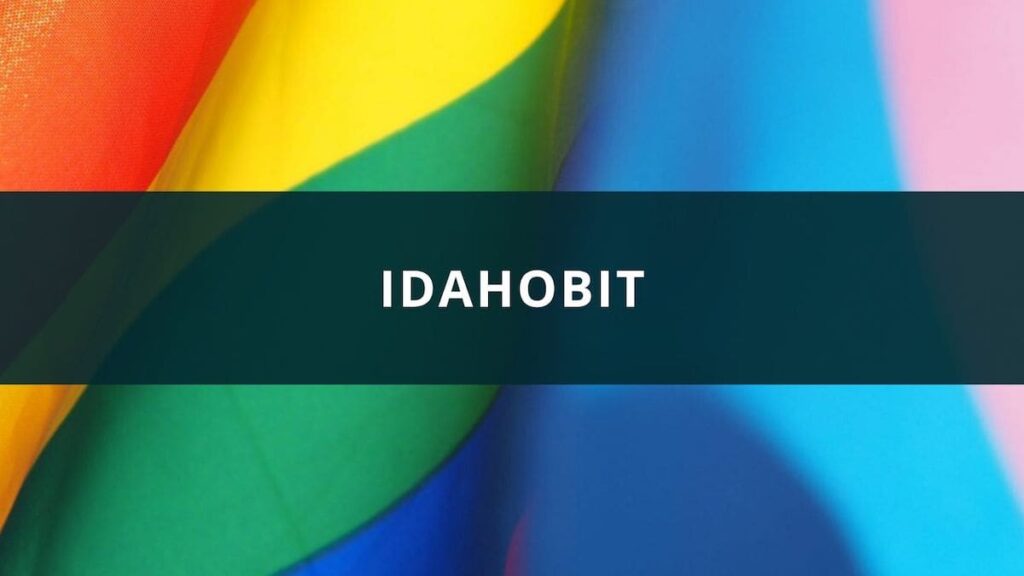On May 17, 1990 – the World Health Organization removed homosexuality from the Classification of Diseases and Related Health Problems. International Day Against Homophobia, Biphobia, Interphobia & Transphobia (IDAHOBIT) celebrates LGBTQIA+ people globally, and raises awareness for the work still needed to combat discrimination.

Homophobia
Homophobia encompasses a range of negative attitudes and feelings toward homosexuality or people who are identified or perceived as being lesbian, gay. It has been defined as contempt, prejudice, aversion, hatred or antipathy, may be based on irrational fear, and is also related to religious beliefs.
Homophobia is observable in critical and hostile behavior such as discrimination and violence on the basis of sexual orientations that are non-heterosexual. Recognized types of homophobia include institutionalized homophobia, e.g. religious homophobia and state-sponsored homophobia, and internalized homophobia, experienced by people who have same-sex attractions, regardless of how they identify.
Biphobia
Biphobia is aversion toward bisexuality and bisexual people as individuals. It is a form of homophobia against those in the bisexual community. It can take the form of denial that bisexuality is a genuine sexual orientation, or of negative stereotypes about people who are bisexual (such as the beliefs that they are promiscuous or dishonest). Other forms of biphobia include bisexual erasure.

Interphobia
Intersex people are born with sex characteristics, such as chromosomes, gonads, or genitals that, according to the UN Office of the High Commissioner for Human Rights, “do not fit typical binary notions of male or female bodies”. “Because their bodies are seen as different, intersex children and adults are often stigmatized and subjected to multiple human rights violations”.
Discriminatory treatment includes infanticide, abandonment, mutilation and neglect, as well as broader concerns regarding the right to life. Intersex people face discrimination in education, employment, healthcare, sport, with an impact on mental and physical health, and on poverty levels, including as a result of harmful medical practices.
Transphobia
Transphobia is a collection of ideas and phenomena that encompass a range of negative attitudes, feelings, or actions towards transgender people or transness in general. Transphobia can include fear, aversion, hatred, violence, anger, or discomfort felt or expressed towards people who do not conform to social gender expectations. It is often expressed alongside homophobic views and hence is often considered an aspect of homophobia. Transphobia is a type of prejudice and discrimination, similar to racism and sexism, and transgender people of color are often subjected to all three forms of discrimination at once.
Transgender youth may experience sexual harassment, bullying, and violence in school, foster care, and welfare programs, as well as potential abuse from within their family. Adult victims experience public ridicule, harassment including misgendering, taunts, threats of violence, robbery, and false arrest; many feel unsafe in public. A high percentage report being victims of sexual violence. Some are refused healthcare or suffer workplace discrimination, including being fired for being transgender, or feel under siege by conservative political or religious groups who oppose LGBT-rights laws. They also suffer discrimination from some people within LGBT social movements, and from some feminists.


